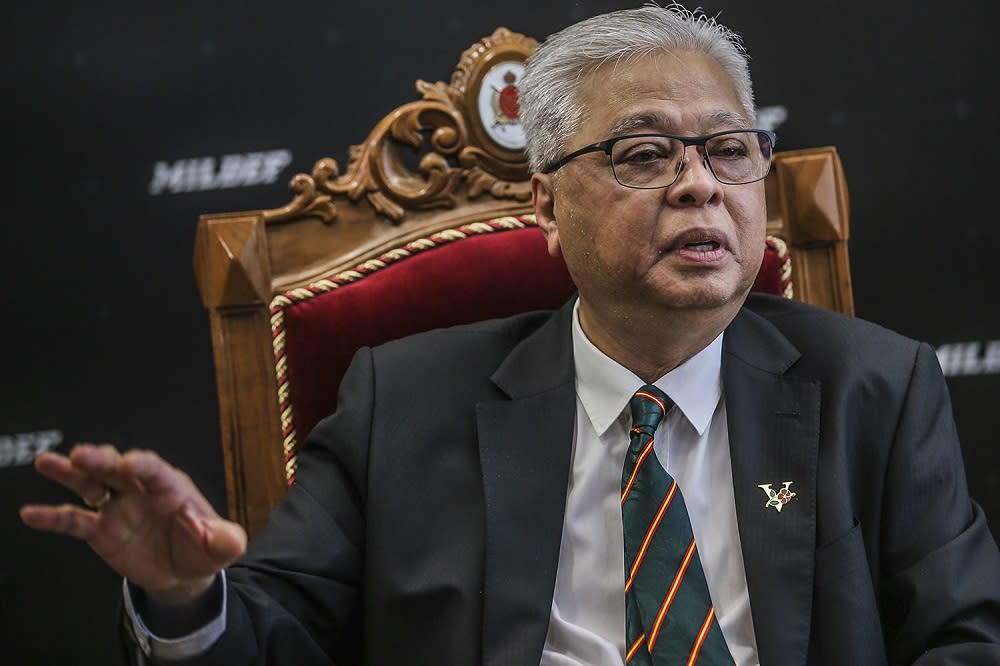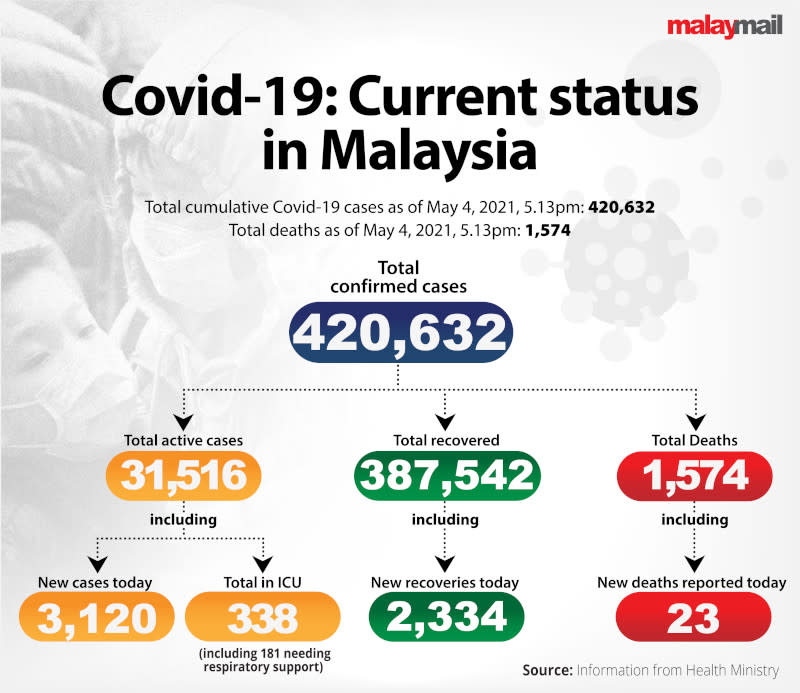Ismail Sabri says cops get thousands of applications on weekends for interstate travel, up to them to approve

KUALA LUMPUR, May 4 — Senior Minister Datuk Seri Ismail Sabri Yaakob today appeared to sidestep an opportunity to firmly instruct all Malaysians — including famous personalities — to not carry out interstate travel unless they have valid reasons.
In a press conference this afternoon, a reporter had highlighted that there appeared to be exemptions given to those who are famous to carry out interstate travel with “unreasonable reasons”, and had asked the minister if he could give a stern explanation for all to follow standard operating procedures for Covid-19 when it comes to interstate travel.
Ismail Sabri then proceeded to say that the power to allow or disallow interstate travel lies with the police depending on the reasons given in applications, but stopped short of touching on the issue of famous personalities allegedly crossing state lines with unreasonable excuses.
He said the exemption for interstate travel is still limited to matters such as deaths of family members.
“Ok, the power to menahan (stop) anyone who crosses states is a power given to the police at roadblocks, so I believe there are no exemptions for the issue of interstate travel, except for the few matters that I mentioned just now, but with the permission from the police still required to be obtained.
“For example, there is a family member’s death, being ill until the person is dying, interstate travel is still allowed for that. But for any other cases, the power to approve lies with the police. Fill in the form for the police station and apply for the police’s permission,” he said.
He said the police may however sometimes deny permission for interstate travel if they doubt the veracity of the reasons given in the application.
“I was told, for weekends, the application for interstate travel is up to 40,000 a day, so sometimes the police also thinks about it, sometimes the police does not allow as the police is kurang yakin (not so confident) about the reasons given. But as I said, the power we have given it to the police, so the police is the one that will allow or not allow,” he added.
Ismail Sabri’s remarks comes amid public criticism of incidents where famous individuals or celebrities were alleged to have crossed state borders for non-essential reasons such as holidays, despite restrictions against such interstate travel.
Ismail Sabri also announced today that the Malaysian government will no longer allow tourists to travel between states under the recovery movement control order (RMCO), as the green travel bubble between RMCO states for tourism purposes via tour agencies will be suspended with immediate effect until further notice of when such interstate travels will be allowed again.
He clarified that the suspension of the travel for tourism purposes in RMCO states only involves interstate travel, with domestic tourists still allowed to travel across districts within any RMCO states for tourism purposes.
Based on the latest government gazette of regulations made by Health Minister Datuk Seri Dr Adham Baba on May 1, places under the recovery movement control order (RMCO) now until May 17 are Kedah (except the five districts under MCO), Melaka, Negri Sembilan (except Seremban district), Pahang (except the Raub district), Perak, Perlis, Terengganu, Putrajaya and Labuan.

Related Articles Now, KL to enter MCO from Friday, says Ismail Sabri Swamped by rising Covid-19 patients, Health Ministry asks Malaysians not to blame it for balik kampung frustrations Miti: In Selangor MCO 3.0 areas, 30pc management allowed in office, other staff based on employers’ discretion



